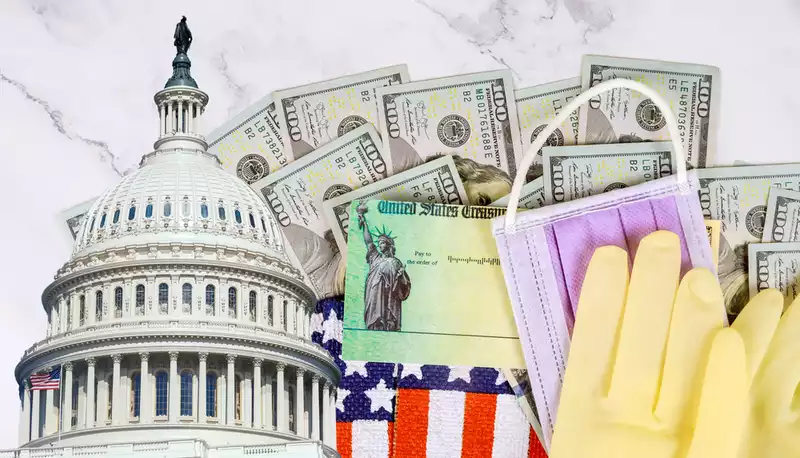This week, the latest round of stimulus checks hit the bank accounts of nearly 2 million Americans. [Since mid-March, the IRS has processed seven checks each week from the Biden administration's American Rescue Plan.
This latest installment, officially announced yesterday (April 28), includes payments to 1.2 million people whose 2020 tax returns were recently processed and who had not previously registered enough information to receive stimulus checks.
More than 730,000 are receiving "plus-up" payments, which will go to taxpayers with significantly less income in 2020 than in 2019.
As a reminder, the American Rescue Plan provided $1,400 checks to individuals with annual incomes up to $75,000 and couples with annual incomes of $150,000. Children and adult dependents would receive the same amount.
Annual income up to $80,000 or $160,000, respectively, is paid on a pro-rated basis.
The IRS sends out checks and "add-ons" every Wednesday to process 2020 tax returns; if the initial stimulus check3 based on the 2019 return is too small, or if you get married or have more dependents in 2020, you will receive an additional payment after your 2020 return. receive.
Income tax returns are due by May 17 for most filers, but the earlier they file, the sooner they will receive the stimulus checks that should be paid.
There is another reason to finish your 2020 tax return now: you may be able to claim a credit for the amount you missed paying under the first and second rounds of the stimulus package.
The Recovery Rebate Credit on line 30 of Form 1040 or 1040-SR applies to taxpayers who had less income in 2020 than in 2019.
The credit may be paid as a tax refund or applied to taxes owed for the year. There are a few simple steps to determine eligibility and apply the credit to your tax return. If you have already filed your return and believe you should have claimed the credit, you may file an amended return.
In fact, the IRS is urging people who normally do not file income tax returns, such as those living on disability benefits, pensions, or Social Security, homeless people, and people with little or no income, to file their 2020 tax returns.
"The IRS needs information from people who do not typically file tax returns, even if they had no income last year or did not earn enough to require a tax return," the IRS said in a blog post earlier this month. The only way the IRS can get that information is if people file their basic 2020 tax returns with the IRS."










Comments